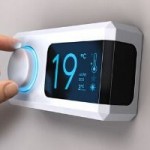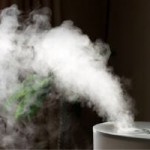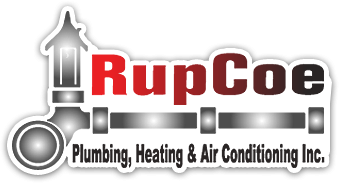Does Cold Air Induce Dry Coughing?
It can be difficult finding the true source of your cough or respiratory irritation, and sneezing or coughing in public is never something you want to do. However, people forget frequently that constant exposure to cold and dry air in spring can lead to “flu-like” symptoms, including a dry cough.
In fact, dry and cold air can lead to “dry coughing” and trigger the growth of allergens in the environment. People who live in areas with humidity levels lower than 50% are more likely to experience “dry cough” and other respiratory problems. This article will discuss some of the causes of your dry cough and what you can do to help your home's air quality.
What’s Causing the Coughing?
 The causes of coughing are many. People cough as a natural reflex for clearing their throat when airways are clogged with mucus or other particles. Postnasal drip can also trigger dry coughing at night which is directly associated with colds seasonal allergies.
The causes of coughing are many. People cough as a natural reflex for clearing their throat when airways are clogged with mucus or other particles. Postnasal drip can also trigger dry coughing at night which is directly associated with colds seasonal allergies.The most common cause for coughing is a respiratory infection due to a virus or bacteria; the post-cold coughs can last for up to two months as a result of irritated airways. Asthma is another cause for coughing which frequently occurs in young children.
Other causes for coughing is due to environmental irritants like dry-cold air. Continuous exposure to cold winds or lower temperatures can easily irritate air passages and start a dry cough. Furthermore, season changes bring out pollen and other allergens which irritate the back of the throat or air passages triggering a cough.
Finding the Ideal Home Temperature
To fight the common cold or virus, health experts recommend people to drink plenty of fluids, rest plenty of hours, and boost the immune system with vitamins and minerals. Experts also advise adjusting the temperature and humidity of the room to prevent worsening current symptoms and speed up the recovery process.

Since cold air can induce dry coughing for long periods of time, experts recommend maintaining a room around 71 F to 73 F to help ease excess coughing. Keeping the AC cold would only continue to irritate breathing passages and prolonging the cough. It is better to avoid big gusts of cold air exposure while experiencing dry cough and/or seasonal allergies.
Home Humidifiers Keep Dry Cough and Viruses Away
 Flu germs and other viruses spread easier in dry air conditions versus humid atmospheres. Humidifiers are magnificent tools for those who live in harsh areas and they are practical tools in fighting the flu season.
Flu germs and other viruses spread easier in dry air conditions versus humid atmospheres. Humidifiers are magnificent tools for those who live in harsh areas and they are practical tools in fighting the flu season.A rapid solution to dry/non-viral cough is adding a humidifier device to help moisten the air during sleep. Humidifiers emit water vapor to increase moisture levels in the air. This moisture helps soothe nasal, throat, and lung passages making it easier to breathe.
Therefore, one can enjoy a more pleasant atmosphere to sleep and breathe. More humidity helps to soothe the throat and thus prevents more coughing. Aim to maintain humidity levels between 45-65% at home, this can stop the spread of germs and viruses.
Hygrometers are inexpensive tools available at most convenient stores to measure humidity. However, as the temperature outside increases adding too much moisture can increase mold growth. Humidifiers also slow down the growth of bacteria and help ward off future illnesses. When in doubt, seek professional assistance to adjust your home temperatures and humidity levels to prevent seasonal allergies and viruses far away.
Contact RupCoe Plumbing, Heating & Air Conditioning
RubCoe Plumbing, Heating & Air Conditioning has been serving the people of South Plainfield, NJ since 1985. Home Guide gave the 5-star rating to RubCoe Plumbing, Heating & Air Conditioning for their outstanding service to their community, and with good reason!













